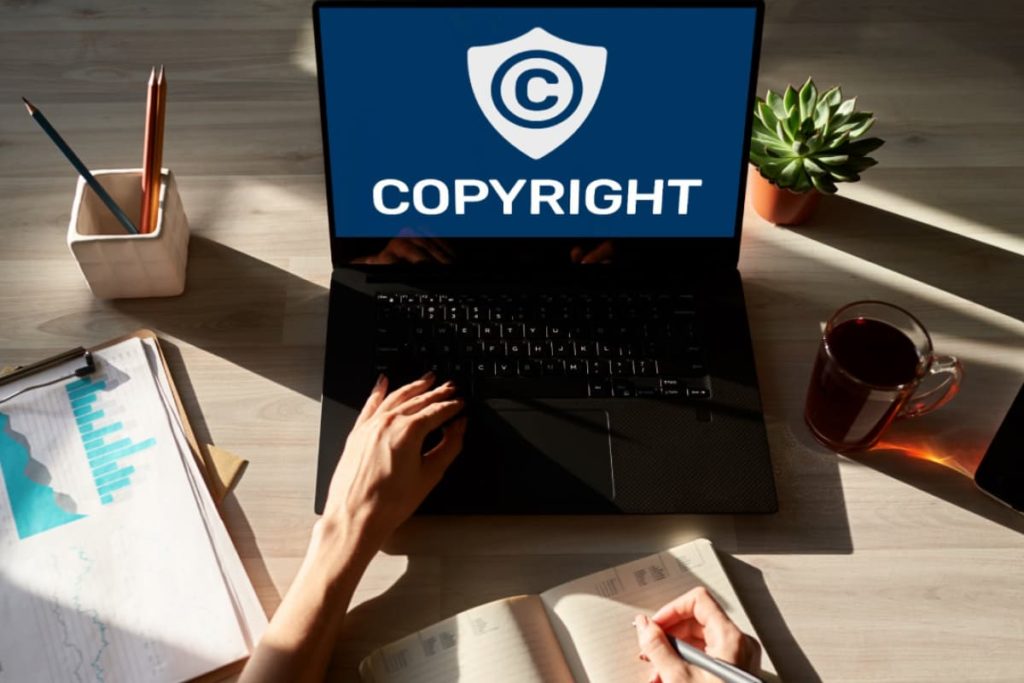After writing and editing your book, it’s ready to be published. However, do you have the rights to publish it? More importantly, do you need permission to publish it?
You do not need permission to publish a book, as anyone can publish their own works at any time they wish. You only need permission to republish or use a published work copyrighted by someone else. Other than that, you are in complete control of what you do with your book.
Keep reading to learn why you don’t need permission to publish a book but why you need permission to use others’ work. Make sure to consult a lawyer before acting on information in Letter Review!

Who a Published Book Belongs To
When you sign a contract with a publisher, they typically ask that you sign over the rights to the book to them in your publishing contract. In this case, the book technically belongs to you and the publisher to varying degrees.
For the sake of this explanation, let’s say you plan to self-publish your book. Whether you decide to publish through an independent agency or entirely solo, your written work belongs to you.
You own your book, which means you can do whatever you like, including publishing it multiple times, or not at all. You can also publish ebooks and audiobooks and even adapt them into a screenplay.
Ownership of a written work also means that nobody else can use it unless you give them explicit permission. You, and you alone, decide the terms by which they can take advantage of your book.
However, this exclusive ownership is dependent on copyright.
You probably automatically gain copyright in your work, depending on where you live. In the USA writers usually gain copyright in their work without having to register it. If the copyright has expired on a work it enters the public domain, but this is often long after the author has passed away.
To begin legal proceedings to defend your copyright in the USA you need to register your work with the Copyright Office. For more information on how to obtain copyright on your book and begin registration, register on the U.S. Copyright Office website and follow the steps provided.
Self-Publishing Online
Self-publishing online through Kindle Direct Publishing (KDP) and other ebook platforms is incredibly easy and accessible. Authors get around 70% of the royalties generated by their books, so, chances are, you’ll get back more than what you put in.
Though Kindle does not have a fee, nor do you have to ask their permission to publish your work through them, their terms and conditions state that:
- You or they can terminate your agreement at any time with notice. But if you terminate, they are allowed to continue selling the inventory of your print books.
- They can suspend your account with or without notice and continue selling your ebooks to people who purchased them before your suspension or termination.
- You will pay for any print books you want to distribute through them.
- They are allowed to change the cover art, metadata, and product description if these violate their terms of service.
- They are allowed to market the book in any way they see fit.
- They are allowed to sell your books in other currencies than listed initially, and they will be responsible for the conversions.
These are just a few terms you must agree to publish with KDP.
What is a Copyright?
A copyright is a bundle of rights including legal ownership granted to the creator of a work, which is exclusive to that owner for a certain period. This is usually around 70 years, so it’s unlikely that a creator will see the expiration of ownership in their lifetime.

When this copyright expires, the work is released into the public domain, which entitles anyone to republish or adapt it. Examples of adaptations are screenplays, stage productions, and musical works.
Some examples of books that are now in the public domain are:
- The Great Gatsby by F. Scott Fitzgerald
- The Invisible Man by H.G. Wells
- The Trial by Franz Kafka
- Dracula by Bram Stoker
The Great Gatsby and The Trial became public domain property in January 2021, decades after their owners’ deaths. Since these creators’ deaths, screenplays, movies, and even book adaptations have been produced.
Copyright vs. Publishing Rights
Let’s look at a scenario where you are on the other side of the copyright. A third party may not have exclusive rights or ownership of a book, but they can approach the owner and request the rights to use it in a particular way.
The owner can reject or deny this, request a fee, and allow you to use the book in ways that are as limited or extensive as they prefer. The World Intellectual Property Organization describes all the ways you can use publishing rights.
They have no legal obligation to grant you any rights, so you will need a compelling reason or plan for how you will use them. Remember, this doesn’t mean you own part of the original work. You can request this from the owner, but you will need a compelling reason.
Transferring and Revoking Rights
The exception to this is if the owner agrees to transfer copyright to you, which, though unlikely, is not unheard of.
The copyright owner can revoke these publishing rights if you are not fulfilling your end of the bargain, as long as they inform you that they will be revoking these rights.
This is one of the reasons why a contract is so important, as it protects your rights and responsibilities as someone with publishing rights.
However, transferring rights from an author to a publisher means that the author must get permission from the publisher to gain publishing rights, even though it is their original work.
Many publishing companies require that you sign over the copyright or exclusive ownership to them, so if this isn’t something you are comfortable with, self-publishing is the way to go.
Although this scenario is also less commonly spoken of, some authors reject their already-published works and try to remove them from circulation and print entirely. This is often due to negative feedback or a change in opinion years later.
The copyright still exists, even though the work has technically been erased from circulation. Still, a copyright can be reversed or removed through the correct procedure. Here is a list of ten authors who rejected their works – some of which you may never have even heard of.
Final Thoughts
You don’t need anyone’s permission to self-publish. However, even self-publishing through an independent publisher will require you to sign contracts and give permission. It’s crucial to be mindful of contracts and how they protect your rights and responsibilities as the owner of a book.

